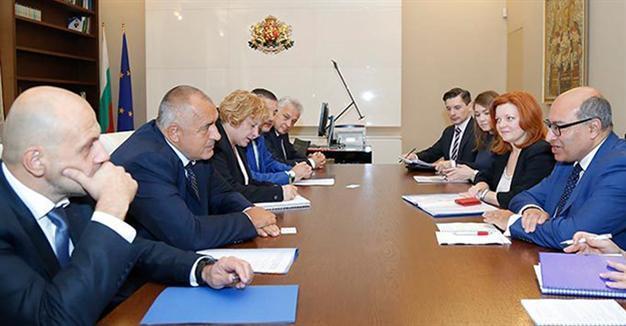EBRD ready to support Bulgaria’s gas hub plans
SOFIA - Reuters
 The European Bank for Reconstruction and Development (EBRD) is ready to support Bulgaria’s plans for a regional natural gas hub and will provide financial support if the project proves viable, the bank’s president said on Sept. 19.
The European Bank for Reconstruction and Development (EBRD) is ready to support Bulgaria’s plans for a regional natural gas hub and will provide financial support if the project proves viable, the bank’s president said on Sept. 19.Suma Chakrabarti said Bulgaria was well situated geographically for a regional gas hub and offered the bank’s expertise to shape the project, which is also supported by the European Commission.
“We would like to very much work with the state on trying to scope out what would work well and what would also attract foreign investors,” he told Reuters in an interview.
Bulgaria currently meets its gas needs with imports from Russia, but is building gas links with neighboring Romania, Greece, Serbia and Turkey to diversify its supplies.
Sofia plans a feasibility study for a 1.5 billion euro hub at the Black Sea port of Varna that would store and transport gas from Russia and the Caspian Sea to southeastern and central Europe.
“If the feasibility study shows something is viable, then of course we are interested, particularly with our expertise in this area. Then I think we would be very, really solidly interested,” Chakrabarti said.
In late 2014, Russia cancelled the South Stream gas project that aimed to transport Russian gas under the Black Sea to Bulgaria and then to central Europe. The scrapping of South Stream was a blow to Bulgaria, which relies almost exclusively on Russian gas.
Russia has made no commitments to provide gas for the hub project and the hub’s scope would be limited it if failed to attract Russian gas. Moscow has said it would consider the idea only if it has guarantees that project would not meet obstacles linked to EU energy rules.
The EBRD has already increased investment in the Balkan country, encouraged by reforms in the financial and power sectors, and expects it to reach a record 530 million euros ($592.22 million) this year, Chakrabarti said.
He said Bulgaria was likely to get about 200 million euros in investment from the bank annually in the future, in response to local demand from the country’s economy.
Bulgaria’s foreign direct investment was 990 million euros in the first seven months of the year, down from 1.15 billion in the same period a year ago and a far cry from 6-7 billion seen before the global financial crisis in 2008-09, central bank data showed.
Chakrabarti said Sofia needed to tackle corruption, improve its judiciary and boost its administrative capacity to attract much needed investment.
EBRD, set up in 1991 to invest in the former Soviet economies of Eastern Europe, sees economic growth as the main challenge for the region, along with the migrant crisis and tensions between Russia and Ukraine, Chakrabarti said.
Additional pressure may come from Britain’s decision to leave the European Union.
















